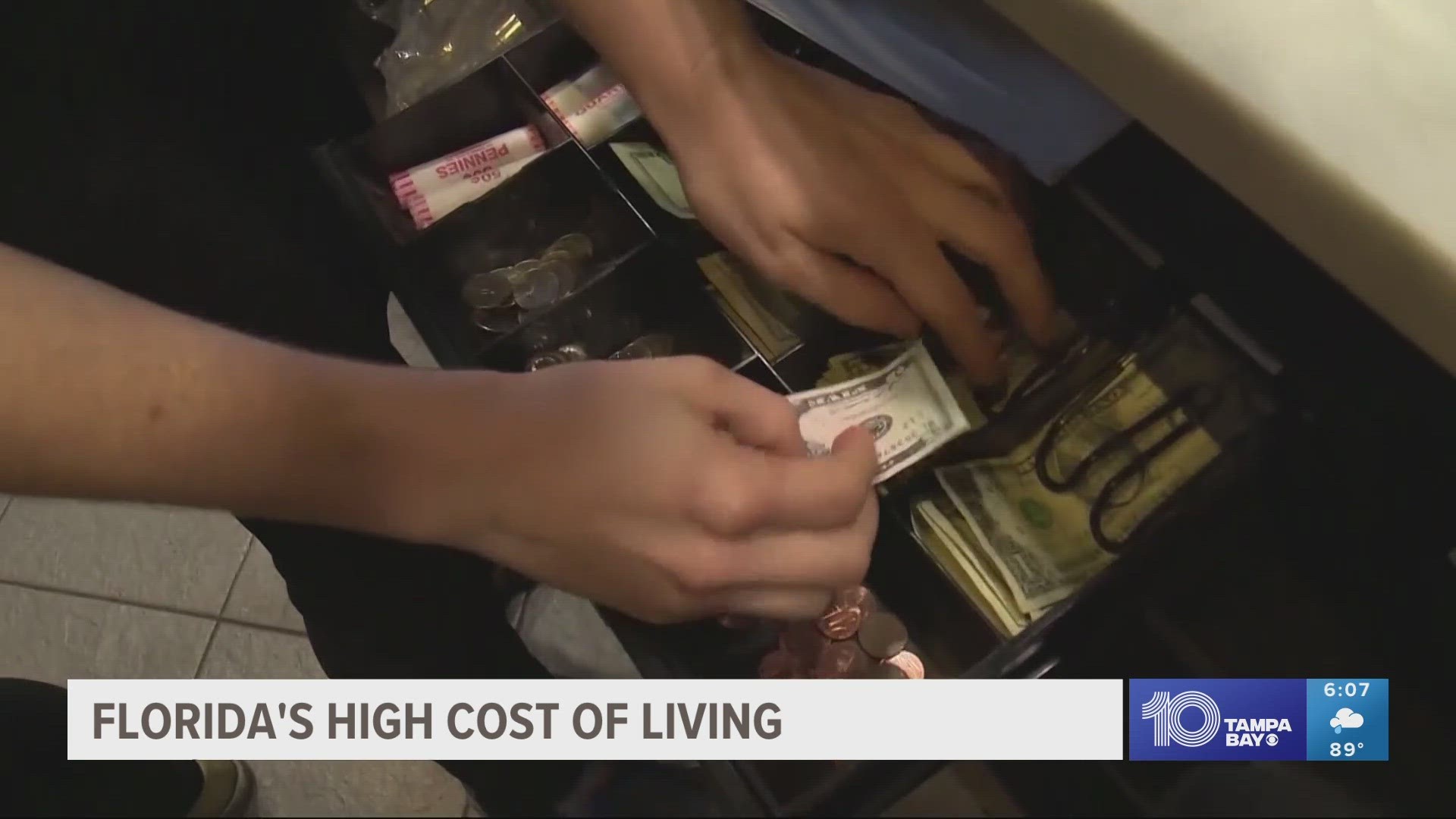TAMPA, Florida — The inflation rate hit a two-year low in June, but the financial relief may not be felt in Florida.
The Federal Reserve raised its key interest rate again on Wednesday in an effort to lower inflation. It comes as the Tampa Bay area still has among the highest inflation rates reported, according to the U.S. Bureau of Labor Statistics.
Tampa-St. Petersburg-Clearwater has a Consumer Price Index, which is measured for inflation, of 7.3% for the year ended in May.
Meanwhile, the Consumer Price Index grew at an annual rate of 3% in June — the smallest increase since March 2021, the Labor Department said on Wednesday.
South Florida is also reporting similar numbers.
The CPI for Miami-Ft. Lauderdale-West Palm Beach is at 6.9% in June from the year before.
Florida Gulf Coast University's Dr. Victor Claar said Florida is outpacing others on inflation in large part due to housing. The majority of the CPI is based on "shelter," the technical term used for housing in the measure, Claar explained.
"It is an index. It's supposed to be what a typical American family buys in a given month," Claar said. "If you live in a place where shelter is increasing at faster rates than other parts of the country, the inflation rate will be faster because it's a really big expenditure that we all face every month."
On top of the ongoing demand for housing in Florida, the state faced a boom in population from COVID-19 and the growth appears to be ongoing from remote workers, retirees and snowbirds.
The need for services in transportation, goods and other services all add up to one's wallet.
Those like Nhick Ramiro Pacis of Tampa keep an eye on his budget from the rising costs at the grocery to his insurance.
"It's really affecting a lot of people. Not only me," Pacis said.
Like other Floridians, Pacis has had to make adjustments. On top of working two jobs, he's cut down on TV subscriptions and dining out in an effort to save.
Claar said it'll be difficult to understand just how soon Florida's higher inflation rates will cool down. As desirable of a market as it was before for factors like real estate, it's undergone high interest since the start of the pandemic.
"I don't think a responsible economist at this point can tell you the day or the month or maybe even the year that things will begin to look more normal... because we don't quite know yet what the new normal is going to be," Claar said.
The Federal Reserve will meet again in September when U.S. Federal Reserve Board Chairman Jerome Powell said another interest rate hike may be possible.

